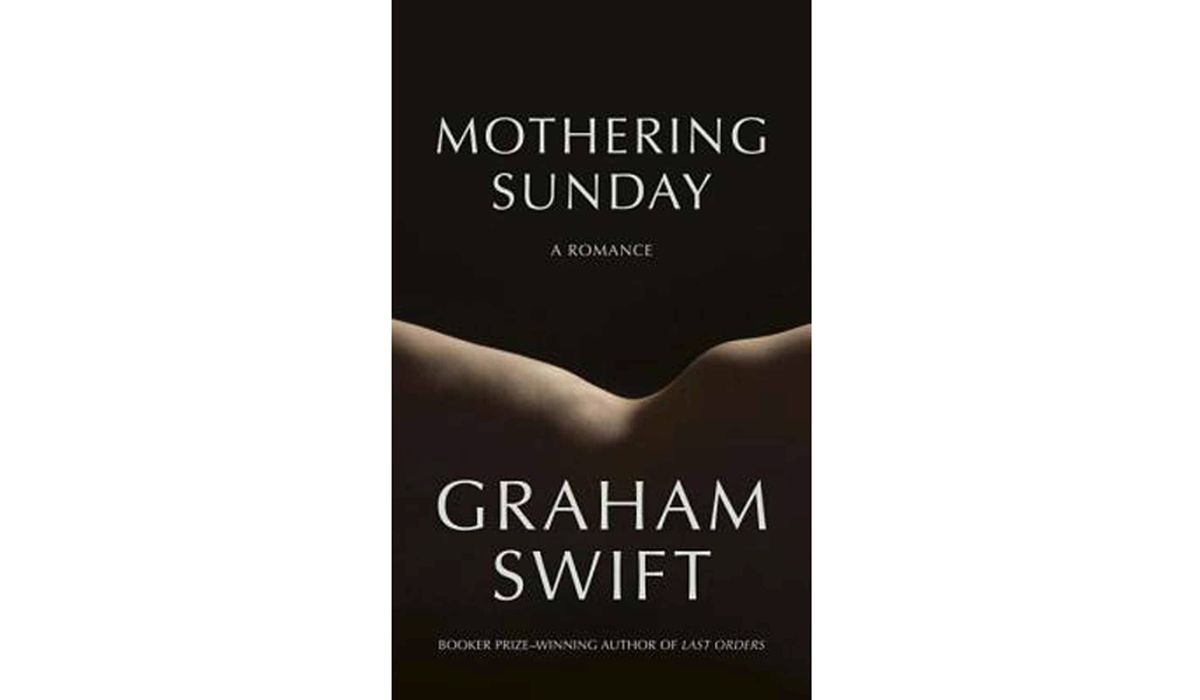BOOK REVIEW: ‘Mothering Sunday: A Romance’
ANALYSIS/OPINION:
MOTHERING SUNDAY: A ROMANCE
By Graham Swift
Alfred A. Knopf, $22.95, 192 pages
Mothering Sunday is an ancient Church celebration that falls on the fourth Sunday of Lent. By that time in England, the daffodils are nodding and with a little luck the sun is shining, as they are in Graham Swift’s latest novel, named after this holiday. Traditionally, people visited their mother church, the one where they were baptized. Over the centuries this came to mean that they could also visit their families, especially their mothers. Employers gave their servants the day off work for this purpose, and also often donated money or some food so they could give their moms a treat.
Maidservant Jane Fairchild is given half a crown and sent on her way on a warm March day in 1924. Immediately she rides her bike to the nearby Sheringham mansion, where Paul Sheringham opens the door and takes her straight to his bedroom for a happy morning of lovemaking. Entering by the front-door and luxuriating in Paul’s bedroom are new to Jane. Having grown up in an orphanage she has no mother to visit, and having had little education anything new delights her: Paul’s expensive watch, the triple mirrors on the dressing table, the heavy curtains at the windows, left open because Paul’s parents — “the shower” as he calls them — are lunching with his fiancee’s “shower.”
With the servants also gone, Paul and Jane have the house to themselves. Jane loves it and she loves Paul, and their seven-year affair. Paul loves her, but not his life. Like everyone in 1924 he struggles with the trauma of World War I, in which his two brothers were killed, leaving him the unwelcome role of scion of the house. He doesn’t want to study law, which is what he is supposed to be doing, and he doesn’t want to marry his fiancee. Jane watches from the bed as he slowly dresses himself for lunch with her, paying detailed attention to his appearance but none at all to his watch. He doesn’t even leave until the time of his lunch date has already passed.
Jane is left free to explore his empty home. She’s happy to poke about feeding her appetite for anything new. She marvels at Mrs. Sheringham’s white orchids. She’s a reader so she assesses the books in the Sheringham’s library. She eats the pie and drinks the beer left in the kitchen for Paul. And all the time, wherever she is, she collects new words: “She gathered up them up like one of those nest-building birds outside.” She thinks about words too: “What a preposterous word anyway; “trousers.” Later, when she is famous and describing her background to interviewers, she says she is a foundling. “Now there’s a word for you. Not such a common one these days is it? It sounds like a word from the eighteenth century. Or a fairy tale.”
Jane’s tale of worldly success has something of the fairy tale about it. Indeed “Mothering Sunday” is identified as a romance, which suggests that Jane’s is not a likely story, and also that it is happy — sunny, just like that long ago morning spent in Paul’s bed. Yet unlikely though it is, it rings true psychologically because Graham Swift is a dab hand at both evoking the inner lives of his characters and tracking the way they age. The ignorant and uncertain — though not unconfident — Jane of 1924 convincingly becomes the assured Jane of the 1990s, who can handle interviewers with asperity. “Mothering Sunday” also rings true historically because Mr. Swift grasps the social history of England, marking the gulf between servants and the people they served, while writing convincingly about outliers such as Jane. Most importantly to its entrancing and even inspiring effect, this short and masterly book reads beautifully because of the crispness and reach of its prose.
Identifying a narrative as a romance links it to a long literary tradition that blossomed in the Middle Ages with improbable tales of the true love of chivalrous knights and their ladies. It flowered again in 19th-century stories of adventure such as “Treasure Island” and “Kidnapped.” Jane loves reading them. Eventually she moves on to Conrad, whom she loves even more. She even fantasizes about being in bed with him, “looking up and watching the smoke from their cigarettes rising, mingling under the ceiling, as if the smoke held some truth greater than either of them could find words for.” Words are her ultimate love — a love somehow nurtured by that Mothering Sunday long ago. (Today it’s morphed in Mother’s Day, celebrated in England much as it is in America, though still on the fourth Sunday of Lent, and still, just occasionally, called Mothering Sunday.)
• Claire Hopley is a writer and editor in Amherst, Mass.
Sign up for Daily Opinion Newsletter
Please, share this post on Twitter !

